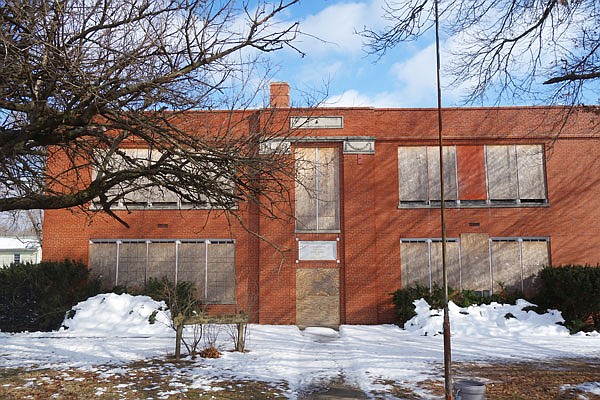Formerly home to a bustling elementary school, the George Washington Carver Grade School may soon serve the opposite end of the age spectrum.
The board of directors of the George Washington Carver Cultural Center has entered into an option contract with MACO Management Company to restore the building and convert it into affordable housing for senior citizens.
"Emotionally, it was kind of a hard decision initially," board President Carmen Brandt said Wednesday. "But, we know this is the best thing for the building."
MACO has converted and now manages similar properties in Sedalia and Poplar Bluff, according to board Vice President Gracia Backer. While the deal is not final yet - MACO is acquiring funding for the project - Brandt and Backer believe the company is up to the task.
Brandt, a Fulton resident, has led plans to revitalize the building after noting its state of decay a number of years ago.
She attended the school as a child before its closure in the 1980s. Not only does it hold many memories for herself and other former students, it was dedicated in 1937 by the great botanist George Washington Carver himself. Initially built in 1882 (then called Old North School), Carver visited Fulton to dedicate the school in 1937. The school wasn't desegregated until 1968.
Victor Pasley, a member of the advisory committee who now lives in Fulton, remembers the school's glory days. He attended it in first through eighth grade.
"They'd bring us all to the gym and put a black-and-white TV onstage so we could watch the World Series," he recalled Thursday. "That's when Jackie Robinson had just integrated to major league baseball. We'd watch a couple of innings and then go back to class.
He also remembers class plays at Christmas and an all-school Halloween parade, including costume judging.
In 2013, Brandt began hatching the plan to revitalize the building. She built an advisory council and nine-person board. The board has acquired the building's deed and nonprofit status, and it currently pays to maintain the building's lawn and fortify it against vandals.
Deciding what to do with the building turned out to be the hard part. An initial plan involved converting it into a cultural center with space for events and education.
"We had to think about it quite a while, because most of us, our mindset was on making it into an educational facility," Brandt said. "But based on environmental structural assessments, monetary cost to turn it into the school would be unbelievable - over $4 million."
Board members decided the cost simply wasn't feasible. One member familiar with MACO mentioned the company as an alternative.
"They've done this same type of project in Sedalia, which was an old school," Backer said.
Board members visited MACO-operated facilities and were impressed by what they saw. Brandt said the company is familiar with and equipped to handle the challenges associated with converting older buildings. Even better, they're willing to dedicate a room to preserving the building's past.
"Now we have an option to restore it and hold on to some of those precious memories," said Pasley, who supports the new plan.
Brandt said the board and advisory committee are in agreement that senior housing will benefit the Fulton community. She's heard about local senior citizens struggling to find a place to live when it's time to downsize.
"I don't think there's another direction, in terms of something that would add to the value of the community," Pasley said. "If we don't do this, we'll have a building that will continue to deteriorate and become dust."
The deal is in its early stages, so there's no set timeline yet. There's plenty of work to do, from rezoning to applying for federal and state tax credits to do the actual restoration process.
"Given the magnitude of the damage the restoration process is going to take a long time for MACO, and they're experts in it," Brandt said. "This is a long-haul process."
MACO would own and manage the renovated facility, Brandt said.
"At this point I think it's the only way to take the building," Backer said. "This company will provide so much expertise in constructing it, if it goes through. I think it'll be a great asset for the community."

